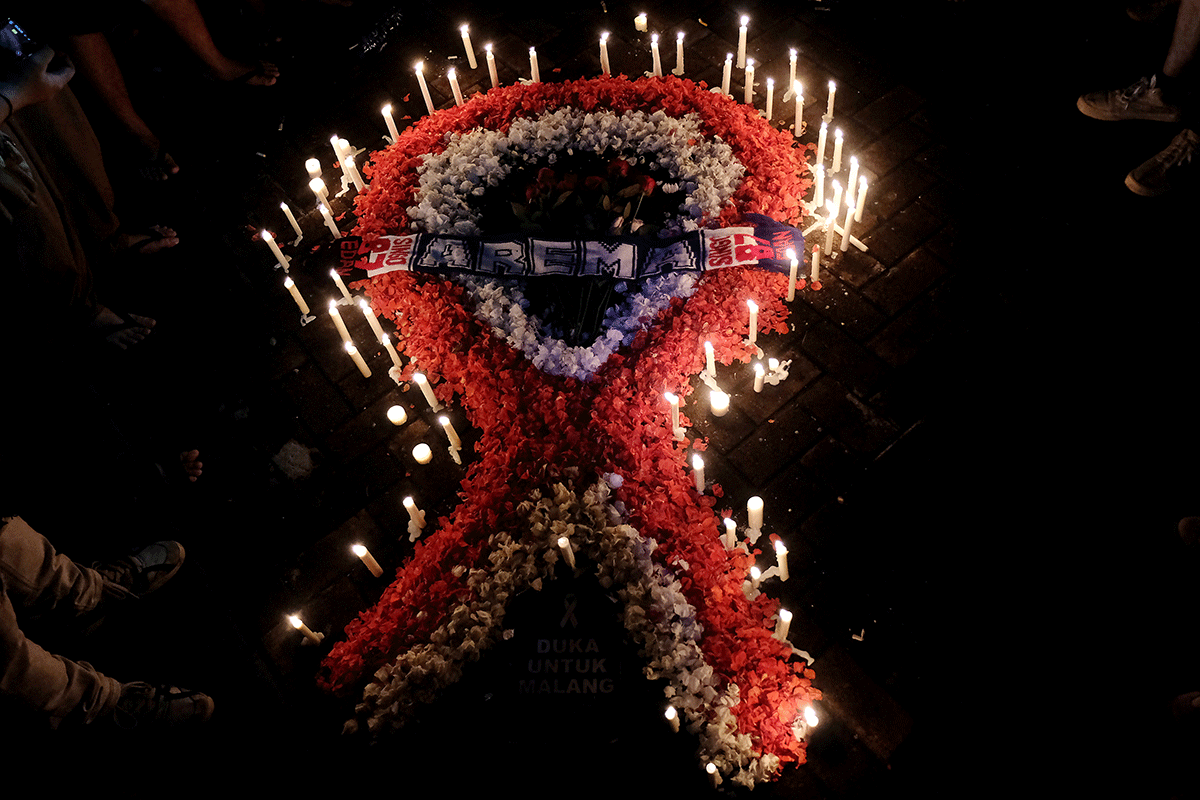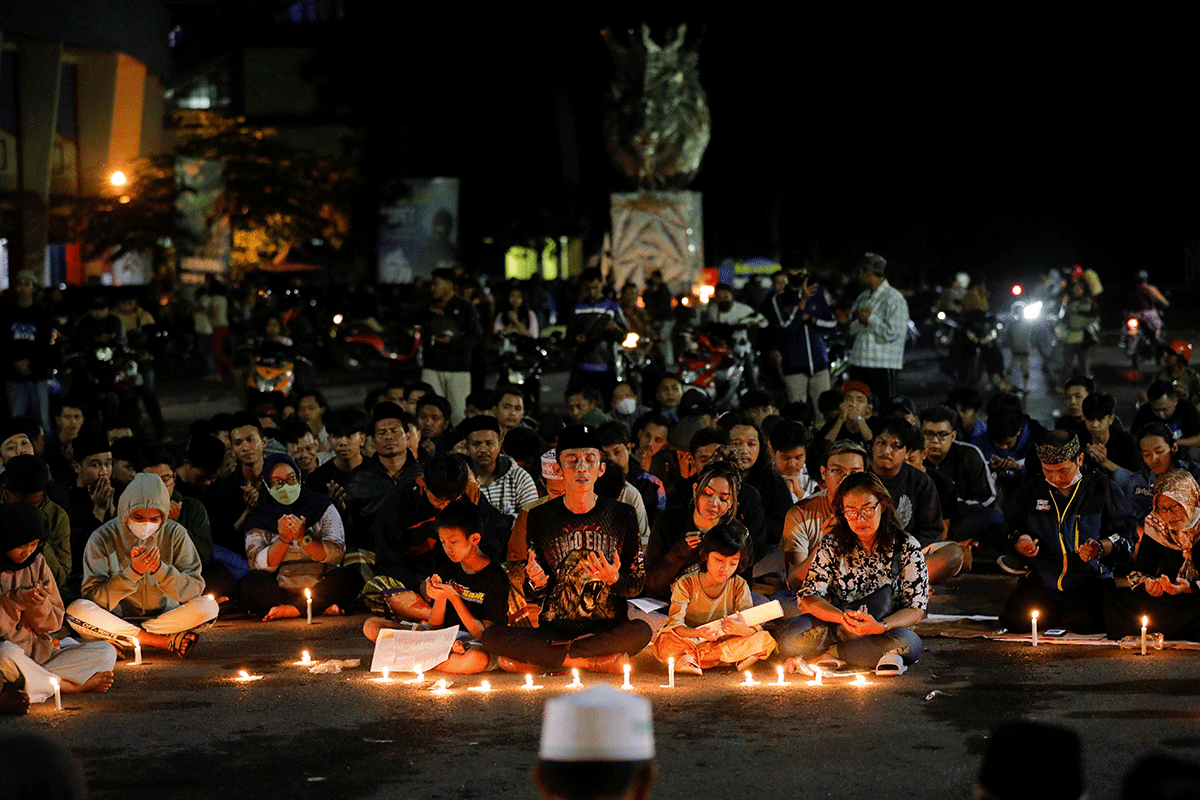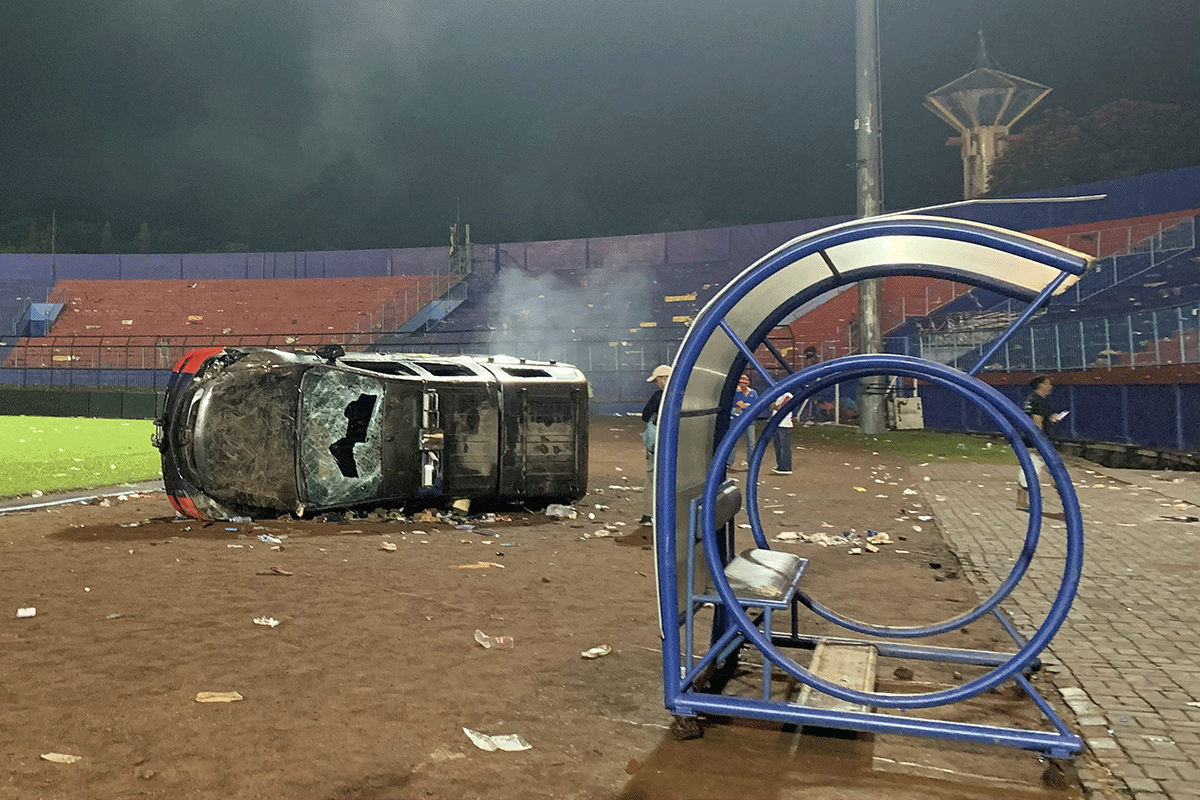
Seventeen children were among at least 125 people killed in a soccer stampede in Indonesia at the weekend, officials said, as pressure builds on the Southeast Asian nation to explain how one of the world's worst stadium disasters unfolded.
Violence and hooliganism have long been features of Indonesian football, especially in places such as Jakarta, the capital, but Saturday's disaster in a small town in Java has thrown a spotlight on the problem.
"My family and I didn't think it would turn out like this," said Endah Wahyuni, the elder sister of two boys, Ahmad Cahyo, 15, and Muhammad Farel, 14, who died after being caught in the melee.
"They loved soccer, but never watched Arema live at Kanjuruhan stadium, this was their first time," she added at her brothers' funeral on Sunday, referring to the home side they backed.
Indonesia's chief security minister Mahfud MD said on Monday the government would form an independent fact-finding team which would include academics and soccer experts as well as government officials to probe what happened.

The team will investigate for the next few weeks with the aim of finding who was responsible for the tragedy, he said.
Indonesian daily Koran Tempo ran a black front page on Monday, centred on the words "Our Football Tragedy", printed in red along with a list of the dead.
Seventeen children were among the dead, with seven others being treated in hospital said Nahar, an official at the women's empowerment ministry.
Saturday's deadly crush came as panicking spectators tried to escape the overpacked stadium after police fired tear gas to disperse fans from the losing home side who ran onto the pitch at the end of the match.
Home side Arema FC had lost the match 3-2 to Persebaya Surabaya, though authorities had said tickets were not issued to Persebaya fans over security concerns.

Mahfud said on Sunday the stadium had been filled beyond its capacity. Some 42,000 tickets had been issued for a stadium designed to hold 38,000 people, he said.
The incident was a "dark day for all involved", said FIFA, the governing body for world soccer, which has asked Indonesian football authorities for a report on the incident.
Its safety regulations say firearms or "crowd control gas" should not be used at matches.
A tearful Arema FC president Gilang Widya Pramana apologised on Monday to the victims of the stampede and said he took full responsibility for the disaster.
"Lives are more precious than soccer," he told a news conference.
In an address on Sunday, Pope Francis said he had prayed for those who have lost their lives and for the injured from the disaster.
Police and sport officials have been sent to Malang to investigate an incident that ranks among the world's deadliest stadium disasters.
"All those responsible should be held accountable for this disaster, regardless of their status or position," Phil Robertson, deputy Asia director of New York-based Human Rights Watch said on Monday.













 © 2025
© 2025